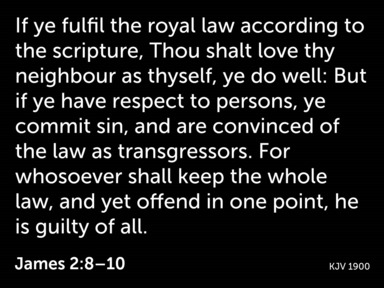The Doctrine of Impartiality 2

The Doctrine
The Transgression
In his book The Source, James Michener tells of a Jewish boy who grew up ostracized by society because he was an illegitimate child. The Law of Moses was explicit: “A bastard shall not enter into the congregation of the LORD; even to his tenth generation shall he not enter into the congregation of the LORD” (Deut. 23:2). It was a law that was intended to secure the sanctity of sex and the strength of family life.
The rabbis went to work on this prohibition, expounded it, amplified it, and probed all of its nuances and ramifications. They came up with a thousand ways to make life intolerable for the victim and invented extraordinary measures for getting around them.
As long as the young man in Michener’s story was small, it was not so bad, although the stigma of his birth clung to him. But as he grew older, he was forced to shoulder an increasingly intolerable burden. The full horror of his situation dawned upon him when he faced the fact that, as a bastard and a social outlaw, he could not marry a respectable Jewish girl. The parents of the girl, the rabbis, and the community as a whole militated against any such unthinkable arrangement. Then, in the midst of his grief and bitterness, he found the church! Here was a group of people, emancipated from the law, both able and willing to receive even a person such as him heartily and without reservation into its fellowship. It opened up a new life.
If God’s mercy does not touch our hearts and transform our lives, then His mercy and forgiveness might very well be withdrawn. The principle, as set forth by James, is that the person who makes no allowances for others will find that no allowance will be made for him either. God expects that recipients of His mercy will have a change of heart toward others. Such is James’s final offering on the altar of truth regarding prejudice and partiality among God’s people. Forgiveness is not the same as justification. A justified person is declared righteous. Justification is unconditional. It is based on justice, not mercy.
